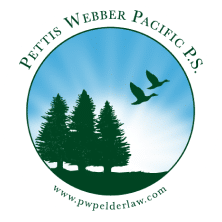Dealing with the legal implications of dementia can be a challenging and emotionally draining experience for individuals and their families. As cognitive abilities decline, important decisions regarding finances, healthcare, and daily living become increasingly difficult. In such situations, it is crucial to understand the legal landscape surrounding dementia to ensure the well-being and autonomy of those affected. This article aims to shed light on the significance of avoiding guardianship and conservatorship, the risks associated with questioning one’s capacity, and the importance of quality planning to alleviate confusion and anxiety.
The Problems with Guardianship & Conservatorship
Guardianship and conservatorship are legal arrangements that grant a designated individual the authority to make decisions on behalf of someone who is deemed incapacitated due to dementia or other cognitive impairments. While these arrangements serve a purpose in protecting vulnerable individuals, they can often lead to painful, unintended consequences.
Loss of Autonomy: One major drawback of guardianship and conservatorship is the loss of personal autonomy. Individuals may feel stripped of their independence, as decisions regarding finances, medical treatments, and living arrangements are taken out of their hands, and fundamental civil rights are taken from them.
Family Disputes: The process of appointing a guardian or conservator can strain family relationships, especially when there are disagreements about who should assume these roles. Such disputes can further exacerbate stress and anxiety and accelerate decline during an already challenging time.
Costly and Ongoing Legal Proceedings: Guardianship and conservatorship proceedings can be lengthy, complex, and expensive. Ongoing court oversight, legal fees, and the requirement to file annual reports place an additional burden on the person’s estate and loved ones.
Why Having Capacity Questioned Is Risky
As dementia progresses, questions regarding an individual’s decision-making capacity may arise. This can lead to legal risks and complications, particularly when it may be “too late” for important legal documents, such as wills, trusts, and powers of attorney, to be created or updated.
Vulnerability to Exploitation: Cognitive decline can make individuals more susceptible to manipulation and financial exploitation. If there are doubts about an individual’s capacity, it may be easier for others to take advantage of their vulnerability.
Legal Challenges: In situations where an individual’s capacity is questioned, legal disputes may arise concerning the validity of important documents. This can lead to lengthy court battles, causing emotional strain and financial burdens for all parties involved. The sooner specialized elder law care planning advice is sought, the better.
The Gift of Quality Incapacity Planning
To mitigate confusion, anxiety, and the risks associated with guardianship or conservatorship, it is essential to engage in proactive planning while cognitive abilities are still intact.
Establishing Incapacity Planning: Creating a comprehensive incapacity plan, such as durable power of attorney for healthcare and finances with asset preservation powers, enables individuals to designate trusted individuals to make decisions on their behalf if they become incapacitated. By doing so, their wishes and preferences can be upheld, minimizing the need for court intervention and minimizing loss to long-term care costs.
Developing a Comprehensive Estate Plan: Crafting a well-thought-out estate plan, including wills, trusts, and other legal instruments, allows individuals to distribute their assets, name beneficiaries, and establish mechanisms for managing their affairs privately, outside of state court control, as dementia progresses. Seeking elder law care planning advice from a specialized attorney is crucial to ensure the plan aligns with their wishes, works cohesively and with ease as needs change over the years, and meets legal requirements..
Educating Family Members: Open and honest communication with family members about wishes, plans, and the importance of avoiding guardianship and conservatorship can foster understanding and unity. Encouraging discussions and involving loved ones in decision-making can provide a sense of ease and assurance during the journey. A specialized elder law care planning attorney can help with tips on how to have such conversations and often can even facilitate such discussions when desired.
Conclusion:
Navigating the legal landscape of dementia can be complex, but with proper planning and awareness, the pitfalls of guardianship and conservatorship can be avoided. By proactively establishing comprehensive estate plans and fostering open communication within the family, individuals affected by dementia can maintain control over their lives, provide better financial security, and ensure their wishes are respected, and alleviate confusion and anxiety for themselves and their loved ones.

